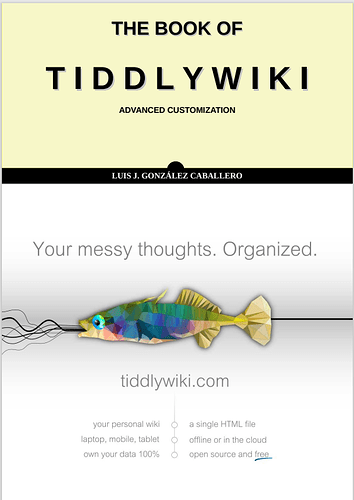I’m a huge fan of physical books. My technical bookshelf is large, and my personal ones are scattered in every room in the house. But I can’t really see the use of a physical book for TW, which is all about interactivity and personalization. I think Soren Bjornstad’s approach in Grok TiddlyWiki, using Tiddlywiki to present itself is more appropriate. I think there is room for many other approaches too, but, while I’d love to see one succeed, I can’t really imagine a physical book covering TW well.
Do you mean this?: TiddlyWiki - Wikibooks, open books for an open world

 I had a lot of hope for it. Could we use the github repo to recreate it and host an archive of it on tiddlyhost, or would that encroach on the author?
I had a lot of hope for it. Could we use the github repo to recreate it and host an archive of it on tiddlyhost, or would that encroach on the author?
